- 50 best autobiographies & biographies of all time

50 best autobiographies & biographies of all time
Enlightening and inspiring: these are the best autobiographies and biographies of 2024, and all time. .
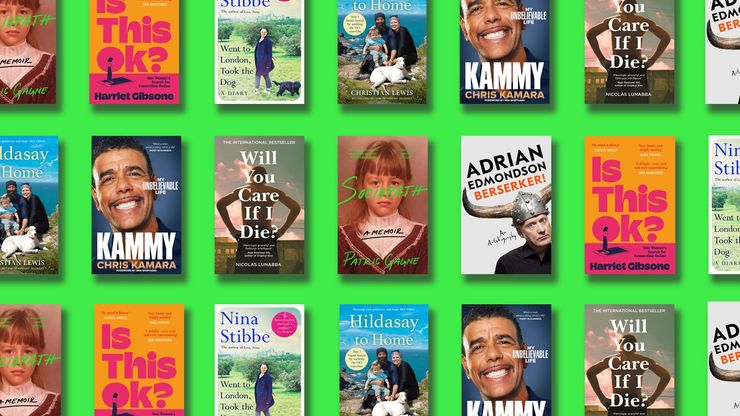
Reading an autobiography can offer a unique insight into a world and experience very different from your own – and these real-life stories are even more entertaining, and stranger, than fiction . Take a glimpse into the lives of some of the world's most inspiring and successful celebrities , politicians and sports people and more in our edit of the best autobiographies and biographies to read right now.
- New autobiographies & biographies
- Inspiring autobiographies & biographies
- Sports autobiographies & biographies
- Celebrity autobiographies & biographies
- Political & historical autobiographies
- Literary autobiographies & biographies
The best new autobiographies and biographies
Sociopath: a memoir, by patric gagne.
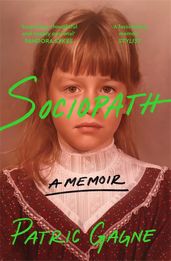
Patric Gagne always knew she was different. While she felt love for her family and best friend, David, her darker impulses were impossible to suppress. From petty theft as a child to more serious crimes as an adult, her life spiralled as she struggled to fit into society’s rules. In Sociopath: A Memoir , Patric offers an unflinching look at her life as a self-identified sociopath, exploring the constant tension between her manipulative tendencies and her desire to live a stable, loving life. Raw, honest, and thought-provoking, this memoir challenges readers to reconsider what they think they know about sociopathy.
by Rick Astley
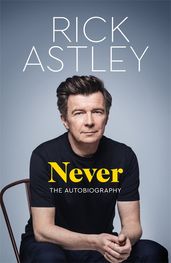
"Never Gonna Give You Up" catapulted Rick Astley to fame and transformed his life forever. Now, he tells his story in his own words. At nineteen, he signed with Pete Waterman of Stock Aitken Waterman, leading him to global fame, platinum albums, and world tours. But at 27, Rick left the industry at the peak of his success to deal with the fame and pressure, as well as his complex family dynamics. A break from music allowed for reflection, therapy, and eventually, a comeback. Never is an intimate exploration of Rick Astley's journey, combining nostalgia, humor, and the astounding power of contentment.
From Here to the Great Unknown: A Memoir
By lisa marie presley.

In 2022, Lisa Marie Presley asked her daughter, Riley, to help complete her long-awaited memoir. A month later, Lisa Marie passed away. Riley, determined to fulfill her mother's wish, listened to tapes Lisa Marie had recorded, recounting vivid and emotional memories: joyful moments at Graceland, the love and loss of her father, tumultuous school years, her relationships with Danny Keough and Michael Jackson, the struggles of motherhood, addiction, and enduring grief. From Here to the Great Unknown is a poignant and revealing memoir, blending Lisa Marie’s and Riley’s voices to share a deeply personal journey of love and healing.
How Was It For You?
By eve smith.
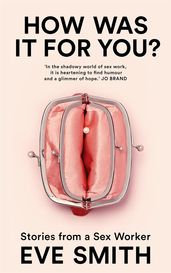
From the poolsides of private Caribbean villas where the nation’s wealthiest spend their downtime to strip clubs, brothels, and online platforms, wherever sex is being sold, ‘Eve’ has been there. Now, she’s ready to tell her story of what selling sex is really like – the good, the bad, and the boring bits – and examine why this booming industry continues to live in the shadows and be condemned by the country’s lawmakers and moral police. A compelling and candid anonymous memoir about the reality of working in the sex industry in Britain, How Was It for You? is a book everyone will be talking about this year.
Just About Coping
By natalie cawley.
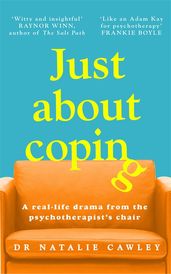
"I absolutely loved this. Like an Adam Kay for psychotherapy, Dr Natalie Cawley opens up the closed world of therapy so well, with humour, honesty and fascinating insights." Frankie Boyle
At the psychologist's clinic of an NHS hospital, Noah needs help with procrastination, Bill compulsively lies, Steph is coping with rejection and their therapist, Dr Natalie Cawley, is dealing with her own emotional crisis, breathing into a paper bag between patient sessions. This is an honest, often poignant and frequently funny memoir about training to be a psychotherapist.
Naked Portrait: A Memoir of Lucian Freud
By rose boyt.
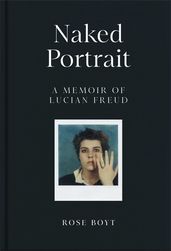
When Rose Boyt finds her old diary in a cardboard box in the summer of 2016, she is transported back to 1989 and her teenage years, a time she never remembered as especially remarkable. However, as Rose reads her accounts of sitting for her father, the painter Lucian Feud, she begins to realise how extraordinary and shocking her experiences truly were. In Naked Portrait: A Memoir of Lucian Freud , Rose Boyt explores her relationship with her father with fresh eyes, painting a vivid portrait of the brilliant, complex man he was.
Let's See What Happens
By marvin rees.
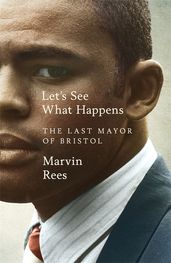
In 2016, Marvin Rees made history as the first mayor of Black African heritage elected in a major European city, guiding Bristol through Brexit, Covid, the cost of living crisis, and the fall of the Colston statue. His path from a mixed-race son of a Jamaican father and white single mother to political leadership included boxing, studying history and politics, becoming a journalistt for the BBC, and losing his first mayoral election. Let's See What Happens chronicles Rees's journey, illustrating how his failures and diverse experiences shaped his leadership. This memoir offers a candid and inspiring look at one of British politics' most charismatic figures.
My Good Bright Wolf
By sarah moss.

Growing up in the 1970s, Sarah Moss learned that the female body and mind were battlegrounds shaped by austerity and second-wave feminism. Expected to be slim yet unvain, intelligent but not angry, and skilled in domestic tasks while viewing them as frivolous, she internalized conflicting messages. Years later, this self-control turned dangerous, leading to a medical emergency as her teenage anorexia resurfaced. Moss navigates these contested memories with humor and insight, revealing how writing and books offered her an escape. Beautifully audacious and moving, this memoir is a remarkable exploration of a mind at war with itself and its journey to healing.
The Endless Country
By sami kent.
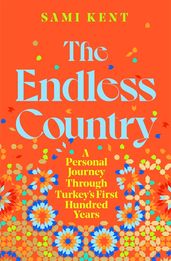
Travelling through Turkey, the country his father left decades ago, journalist Sami Kent sets out to learn more about the people, ideas, and culture that have defined Turkey’s history, and how Turkish people live today. From the cult of the country’s weightlifters to regional delicacies shaped by Turkey’s flora, The Endless Country is a journey through the extraordinary diversity of the nation’s past and how that history shapes its present.
by Jen Hadfield
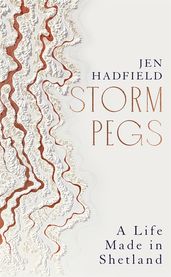
Shrouded in myth and mist, surrounded by unforgiving seas and awe-striking beauty, the Scottish archipelago of Shetland feels like, for all intents and purposes, the edge of the world. So, when celebrated poet Jen Hadfield decided to up sticks and move there in her early twenties, she had more than a few naysayers. Now, almost two decades later, she is sharing her Shetland, a place teeming with wildlife, at the mercy of the weather, and with community at its heart. A rich, magical memoir, Storm Pegs will transport you to a place unlike anywhere else in the world.
Air and Love
By or rosenboim.
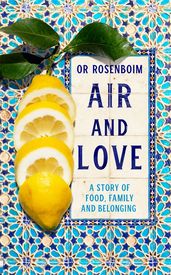
When Or Rosenboim was growing up, she knew little of her family’s complex history, with her memories of family instead rooted in the traditional dishes her grandmothers prepared with love. After they had both passed away, she began to explore their recipe books, full of handwritten notes for how to make kneidlach balls in hot chicken broth, cinnamon-scented noodle kugel and stuffed vine leaves. There, Or learned of their shared past, one fraught with displacement and change. Interspersing her family’s story with their cherished recipes, Or Rosenboim’s Air and Love is a memoir about food, migration and family.
A Life Reimagined
By jill halfpenny.
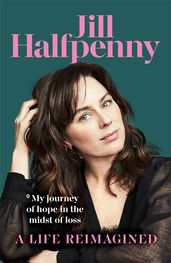
Jill Halfpenny is one of the nation’s best-loved homegrown TV stars. But, unbeknown to most, her life away from the small screen has been shaped by profound loss, first with the death of her father, who died suddenly while playing five-a-side football when she was four, and then, in cruelly similar circumstances, her partner Matt in 2017. Forced to confront the impact that loss has had on her life and to find a way to process and live with her grief, she went on a journey of discovery. In A Life Reimagined , Jill shares what she has learned and tells her story with unflinching honesty and warmth.
Literature for the People
By sarah harkness.
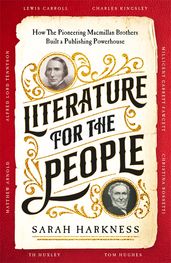
When Daniel and Alexander Macmillan moved to London from the Scottish Highlands in 1830, little did they know that the city was on the brink of huge social change, and that they would change publishing forever. This is the story of the Macmillan brothers who, after an impoverished, working-class childhood, went on to bring Alice in Wonderland and numerous other literary classics and ideas to the world. Through meticulous research and highly entertaining storytelling, Sarah Harkness brings to life the two men who founded a publishing house which has stood the test of time for almost two centuries.
Hildasay to Home
By christian lewis.
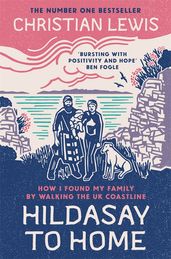
The follow-up to his bestselling memoir Finding Hildasay , in Hildasay to Home Christian Lewis tells the next chapter of his extraordinary journey, step by step. From the unexpected way he found love, to his and Kate's journey on foot back down the coastline and into their new lives as parents to baby Marcus, Christian shares his highs and lows as he and his dog Jet leave Hildasay behind. Join the family as they adjust to life away from the island, and set off on a new journey together.
The best inspiring autobiographies and biographies
Finding hildasay.
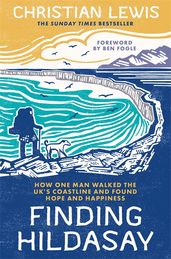
Struggling with depression and isolation, Christian Lewis made a snap decision that would change his life: to walk the entire coastline of the UK with just a tent, some food, and his loyal dog, Jet. What began as a desperate escape turned into a six-year adventure filled with breathtaking landscapes, unexpected encounters, and moments of profound personal discovery. In Finding Hildasay, Christian shares how three months spent alone on a remote Scottish island became the turning point in his journey, where he rediscovered pride, resilience, and hope. This powerful memoir is a testament to the healing power of nature and the strength found in perseverance.
The Happiest Man on Earth
By eddie jaku.
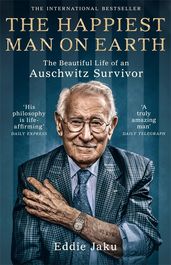
Eddie Jaku survived the Holocaust, enduring unimaginable horrors in concentration camps and the loss of family. But instead of letting hatred and bitterness take root, Eddie made a promise – to live every day with gratitude, compassion, and kindness. The Happiest Man on Earth shares his incredible journey of survival and resilience, offering readers life lessons learned from his darkest moments. Now in his 100s, Eddie Jaku’s message is simple yet profound: happiness can be found even in the hardest times, and it’s something we can choose every day.
by Yusra Mardini
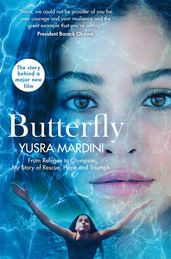
After fleeing her native Syria to the Turkish coast in 2015, Yusra Mardini boarded a small dinghy full of refugees headed for Greece. On the journey, the boat's engine cut out and it started to sink. Yusra, her sister, and two others took to the water to push the overcrowded boat for three and a half hours in open water, saving the lives of those on board. Butterfly is Yusra Mardini's journey from war-torn Damascus to Berlin and from there to the 2016 Rio de Janeiro Olympic Game. A UNHCR Goodwill Ambassador and one of People magazine's 25 Women Changing the World, discover Yusra and her incredible story of resilience and unstoppable spirit.
Don't Miss
3 lessons to learn from Eddie Jaku
I know why the caged bird sings, by maya angelou.
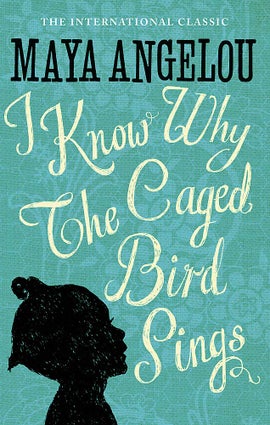
A favourite book of former president Obama and countless others, I Know Why the Caged Bird Sings , recounts Angelou’s childhood in the American south in the 1930s. A beautifully written classic, this is the first of Maya Angelou's seven bestselling autobiographies.
The best memoirs
This is going to hurt, by adam kay.
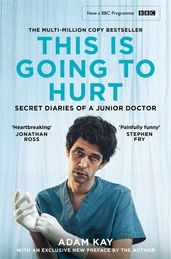
Offering a unique insight into life as an NHS junior doctor through his diary entries, Adam Kay's bestselling autobiography is equal parts heartwarming and humorous, and oftentimes horrifying too. With 97-hour weeks, life and death decisions and a tsunami of bodily fluids, Kay provides a no-holds-barred account of working on the NHS frontline. Now a major BBC comedy-drama, don't miss this special edition of This Is Going To Hurt including a bonus diary entries and an afterword from the author.
Is This Ok?
By harriet gibsone.
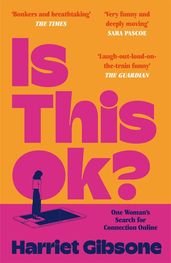
Caught in a web of internet obsessions, Harriet Gibsone found herself lost between compulsive Google searches and one-sided celebrity crushes. This is her laugh-out-loud journey through the strange pressures of digital life. When she faced early menopause in her late twenties, her online world shifted dramatically. The endless scrolling and parasocial relationships started to feel empty, forcing Harriet to confront the reality of illness and the challenges of new motherhood. A sharp, witty, and brutally honest look at life in the digital age, Is This OK? uncovers how the internet shapes, distorts, and sometimes consumes us.
The Colour of Madness
By samara linton.
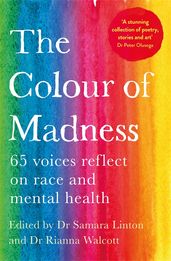
The Colour of Madness brings together memoirs, essays, poetry, short fiction and artworks by people of colour who have experienced difficulties with mental health. From experiencing micro-aggressions to bias, and stigma to religious and cultural issues, people of colour have to fight harder than others to be heard and helped. Statistics show that people from Black and minority ethnic backgrounds in the UK experience poor mental health treatment in comparison to their white counterparts, and are more likely to be held under the Mental Health Act. For more inspiring reads take a look at our our top books about mental health .
Nothing But The Truth
By the secret barrister.
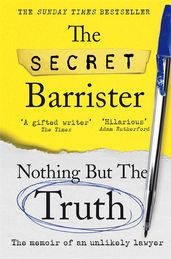
How do you become a barrister? Why do only 1 per cent of those who study law succeed in joining this mysterious profession? And why might a practising barrister come to feel the need to reveal the lies, secrets, failures and crises at the heart of this world of wigs and gowns? Full of hilarious, shocking and surprising stories, Nothing But The Truth tracks the Secret Barrister’s transformation from hang ‘em and flog ‘em, austerity-supporting twenty-something to a campaigning, bestselling, reforming author whose writing in defence of the law is celebrated around the globe.
Will You Care If I Die?
By nicolas lunabba.
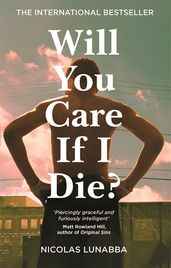
In a world where children murder children, and where gun violence is the worst in Europe, Nicolas Lunabba's job as a social organizer with Malmö's underclass requires firm boundaries and emotional detachment. But all that changes when he meets Elijah – an unruly teenage boy of mixed heritage whose perilous future reminds Nicolas of his own troubled past amongst the marginalized people who live on the fringes of every society. Written as a letter to Elijah, Will You Care If I Die? is a disarmingly direct memoir about social class, race, friendship and unexpected love.
Went to London, Took the Dog: A Diary
By nina stibbe.
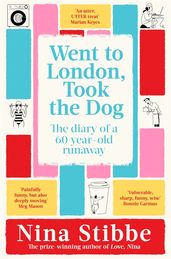
Ten years after the publication of the prize-winning Love, Nina comes the author’s diary of her return to London in her sixty-first year. After twenty years, Nina Stibbe, accompanied by her dog Peggy, stays with writer Debby Moggach in London for a year. With few obligations, Nina explores the city, reflecting on her past and embracing new experiences. From indulging in banana splits to navigating her son's dating life, this diary captures the essence of a sixty-year-old runaway finding her place as a "proper adult" once and for all.
A Letter to My Transgender Daughter
By carolyn hays.
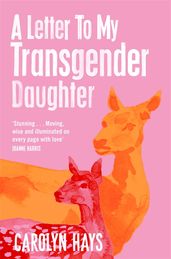
This moving memoir is an ode to Hays' transgender daughter – a love letter to a child who has always known herself. After a caseworker from the Department of Children and Families knocked on the door to investigate an anonymous complaint about the upbringing of their transgender child, the Hays family moved away from their Republican state. In A Girlhood, Hays tells of the brutal truths of being trans, of the sacrificial nature of motherhood and of the lengths a family will go to shield their youngest from the cruel realities of the world. Hays asks us all to love better, for children everywhere enduring injustice and prejudice.
by Michelle Obama
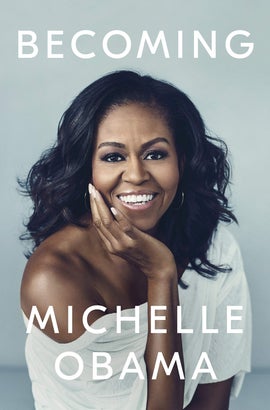
This bestselling autobiography lifts the lid on the life of one of the most inspiring women of a generation, former first lady Michelle Obama. From her childhood as a gifted young woman in south Chicago to becoming the first black First Lady of the USA, Obama tells the story of her extraordinary life with humour, warmth and honesty.
Kitchen Confidential
By anthony bourdain.
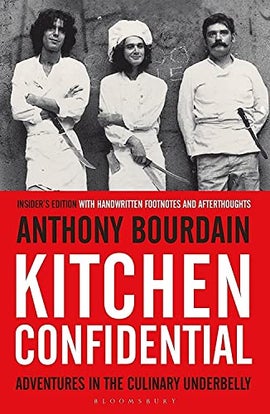
Regarded as one of the greatest books about food ever written, Kitchen Confidential lays bare the wild tales of the culinary industry. From his lowly position as a dishwasher in Provincetown to cooking at some of the finest restaurants across the world, the much-loved Bourdain translates his sultry, sarcastic and quick-witted personality to paper in this uncensored 'sex, drugs, bad behaviour and haute cuisine' account of life as a professional chef. Bourdain's tales of the kitchen are as passionate as they are unpredictable, as shocking as they are funny.
Everything I Know About Love
By dolly alderton.
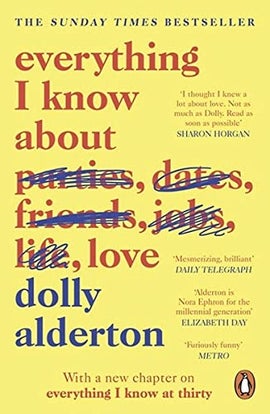
Dolly Alderton, perhaps more than any other author, represents the rise of the messy millennial woman – in the very best way possible. Her internationally bestselling memoir gives an unflinching account of the bad dates and squalid flat-shares, the heartaches and humiliations, and most importantly, the unbreakable female friendships that defined her twenties. She weaves together personal stories, satirical observations, a series of lists, recipes, and other vignettes that will strike a chord of recognition with women of every age. This is a memoir that you'll discuss with loved ones long after the final page.
The best sports autobiographies and biographies
By chris kamara.
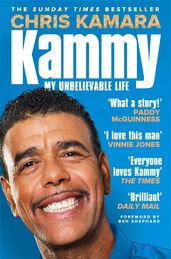
Presenter, commentator, (sometimes masked) singer, footballer, manager and campaigner, Kammy's action-packed career has made him a bona fide British hero. Kammy had a tough upbringing, faced racism on the terraces during his playing career and has, in recent years, dealt with a rare brain condition – apraxia – that has affected his speech and seen him say goodbye to Sky Sports. With entertaining stories of his playing career from Pompey to Leeds and beyond; his management at Bradford City and Stoke; his crazy travels around the world; of Soccer Saturday banter; presenting Ninja Warrior ; and the incredible friendships he's made along the way, Kammy is an unforgettable ride from one of Britain's best-loved broadcasters.
Alone on the Wall
By alex honnold.
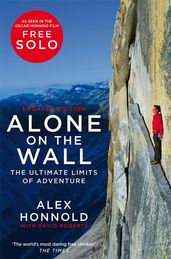
In the last forty years, only a handful of climbers have pushed themselves as far, ‘free soloing’ to the absolute limit of human capabilities. Half of them are dead. Although Alex Honnold’s exploits are probably a bit too extreme for most of us, the stories behind his incredible climbs are exciting, uplifting and truly awe-inspiring. Alone on the Wall is a book about the essential truth of being free to pursue your passions and the ability to maintain a singular focus, even in the face of mortal danger. This updated edition contains the account of Alex's El Capitan climb, which is the subject of the Oscar and BAFTA winning documentary, Free Solo .
Too Many Reasons to Live
By rob burrow.
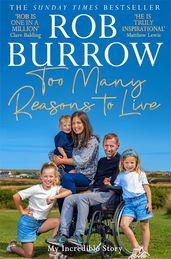
As a child, Rob Burrow was told he was too small to be a rugby player. Some 500 games for Leeds later, Rob had proved his doubters wrong: he won eight Super League Grand Finals, two Challenge Cups, three World Club Challenges and played for his country in two World Cups. In 2019 though, Rob was diagnosed with motor neurone disease and given just two years to live. He went public with the news, determined to fight it all the way. Full of love, bravery and kindness, this is the story of a man who has awed his fans with his positive attitude to life.
Discover Try: the picture book from inspiring duo, Rob Burrows & Kevin Sinfield
At home with muhammad ali, by hana yasmeen ali.
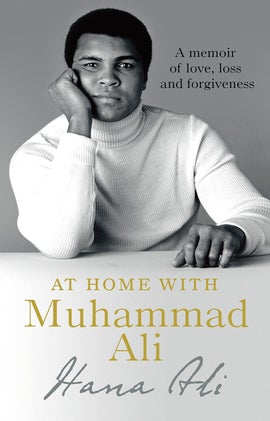
Written by his daughter Ali using material from her father's audio journals, love letters and her treasured family memories, this sports biography offers an intimate portrait of one of boxing's most legendary figures, and one of the most iconic sports personalities of all time.
They Don't Teach This
By eniola aluko.
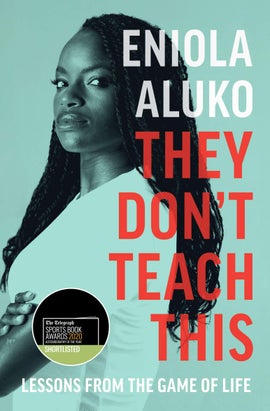
In her autobiography, footballer Eni Aluko addresses themes of dual nationality, race and institutional prejudice, success, gender and faith through her own experiences growing up in Britain. Part memoir, part manifesto for change, They Don't Teach This is a must-read book for 2020.
The best celebrity autobiographies and biographies
Life's work, by david milch.
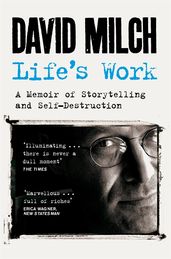
Best known for creating smash-hit shows including NYPD Blue and Deadwood, you’d be forgiven for thinking that David Milch had lived a charmed life of luxury and stardom. In this, his new memoir, Milch dispels that myth, shedding light on his extraordinary life in the spotlight. Born in Buffalo New York to a father gripped by drug-addiction, Milch enrolled at Yale Law befire being expelled and finding his true passion for writing. Written following his diagnosis with Alzheimer’s in 2015, in Life’s Work Milch records his joys, sadnesses and struggles with startling clarity and grace.
by Adrian Edmondson
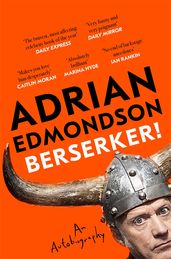
In the stiff confines of a Methodist upbringing and the corridors of a strict boarding school, rebellion began brewing in Adrian Edmondson. Years later, alongside Rik Mayall, he would ignite an anarchic revolution in British comedy with The Young Ones and Bottom . In Berserker! , Ade’s razor-sharp wit and unapologetic humour bring to life the outrageous characters, star-studded encounters, and unforgettable moments that defined his career. From Soho arrests to digging into his curious Scandinavian roots, this memoir is a riotous journey through comedy, chaos, and self-discovery.
Beyond the Story
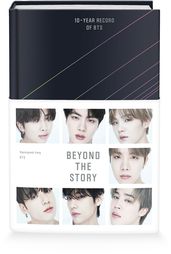
In honor of BTS's 10th anniversary, this remarkable book serves as the band's inaugural official release, offering a treasure trove of unseen photographs and exclusive content. With Myeongseok Kang's extensive interviews and years of coverage, the vibrant world of K-pop springs to life. As digital pioneers, BTS's online presence has bridged continents, and this volume grants readers instant access to trailers, music videos, and more, providing a comprehensive journey through BTS's defining moments. Complete with a milestone timeline, Beyond the Story stands as a comprehensive archive, encapsulating everything about BTS within its pages.
Being Henry
By henry winkler.

Brilliant, funny, and widely-regarded as the nicest man in Hollywood, Henry Winkler shares the disheartening truth of his childhood, the difficulties of a life with severe dyslexia and the pressures of a role that takes on a life of its own. Since the glorious era of Happy Days fame, Henry has endeared himself to a new generation with roles in such adored shows as Arrested Development and Barry , where he’s revealed himself as an actor with immense depth and pathos. But Being Henry is about so much more than a life in Hollywood and the curse of stardom. It is a meaningful testament to the power of sharing truth and of finding fulfillment within yourself.
What Are You Doing Here?
By floella benjamin.
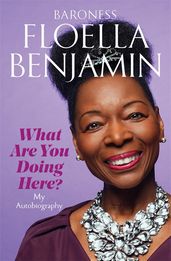
Actress, television presenter, member of the House of Lords – Baroness Floella Benjamin is an inspiration to many. But it hasn't always been easy: in What Are You Doing Here? she describes her journey to London as part of the Windrush generation, and the daily racism that caused her so much pain as a child. She has gone on to remain true to her values, from breaking down barriers as a Play School presenter to calling for diversity at the BBC and BAFTA to resisting the pressures of typecasting. Sharing the lessons she has learned, imbued with her joy and positivity, this autobiography is the moving testimony of a remarkable woman.
by Elton John
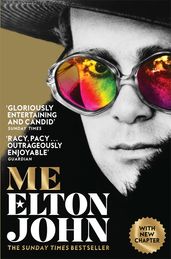
Elton John is one of the most successful singer/songwriters of all time, but success didn't come easily to him. In his bestselling autobiography, he charts his extraordinary life, from the early rejection of his work to the heady heights of international stardom and the challenges that came along with it. With candour and humour, he tells the stories of celebrity friendships with John Lennon, George Michael and Freddie Mercury, and of how he turned his life around and found love with David Furnish. Me is the real story of the man behind the music.
by Walter Isaacson
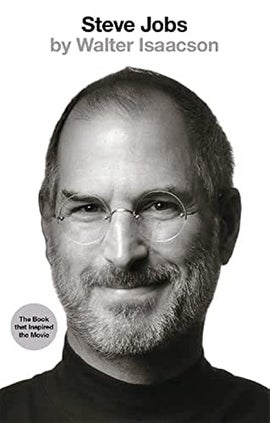
Based on interviews conducted with Steve Jobs, Walter Isaacson's biography of Apple co-founder Steve Jobs is filled with lessons about innovation, leadership, and values and has inspired a movie starring Michael Fassbender, Kate Winslet and Seth Rogen. Isaacson tells the story of the rollercoaster life and searingly intense personality of creative entrepreneur whose passion for perfection and ferocious drive revolutionized the tech industry. Although Jobs cooperated with this book, he asked for no control over what was written and put nothing off limits, making this an unflinchingly candid account of one of the key figures of modern history.
Maybe I Don't Belong Here
By david harewood.
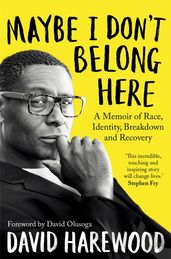
When David Harewood was twenty-three, his acting career began to take flight and he had what he now understands to be a psychotic breakdown. He was physically restrained by six police officers, sedated, then hospitalized and transferred to a locked ward. Only now, thirty years later, has he been able to process what he went through. In this powerful and provocative account of a life lived after psychosis, critically acclaimed actor, David Harewood, uncovers a devastating family history and investigates the very real impact of racism on Black mental health.
Scenes from My Life
By michael k. williams.
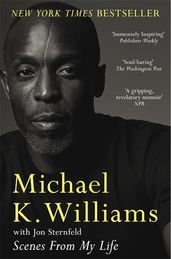
When Michael K. Williams died on 6 September 2021, he left behind a career as one of the most electrifying actors of his generation. At the time of his death, Williams had nearly finished his memoir, which traces his life in whole, from his childhood and his early years as a dancer to his battles with addiction. Alongside his achievements on screen he was a committed activist who dedicated his life to helping at-risk young people find their voice and carve out their future. Imbued with poignance and raw honesty, Scenes from My Life is the story of a performer who gave his all to everything he did – in his own voice, in his own words.
The best political and historical autobiographies
The fall of boris johnson, by sebastian payne.
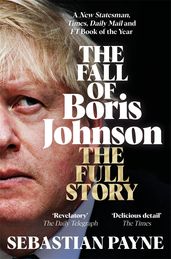
Sebastian Payne, Whitehall Editor for the Financial Times, tells the behind-the-scenes story of the fall of former Prime Minister, Boris Johnson. After being touted saviour of the Conservative Party, it took Johnson just three years to resign after a series of scandals. From the blocked suspension of Owen Patterson to Partygate and the Chris Pincher allegations, Payne gives us unparalleled access to those who were in the room when key decisions were made, ultimately culminating in Boris's downfall. This is a gripping and timely look at how power is gained, wielded and lost in Britain today.
Charles III
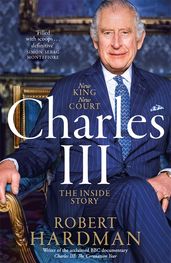
Meet the man behind the monarch in this new biography of King Charles III by royal expert and journalist Robert Hardman. Charting Charles III’s extraordinary first year on the throne, a year plighted by sadness and family scandal, Hardman shares insider details on the true nature of the Windsor family feud, and Queen Camilla’s role within the Royal Family. Detailing the highs and lows of royal life in dazzling detail, this new biography of the man who waited his whole life to be King is one of 2024’s must-reads.
by Sung-Yoon Lee
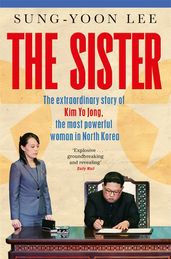
The Sister , written by Sung-Yoon Lee, a scholar and specialist on North Korea, uncovers the truth about Kim Yo Jong and her close bond with Kim Jong Un. In 2022, Kim Yo Jong threatened to nuke South Korea, reminding the world of the dangers posed by her state. But how did the youngest daughter of Dear Leader Kim Jong Il, his ‘sweet princess’, become the ruthless chief propagandist, internal administrator and foreign policymaker for her brother’s totalitarian regime? Readable and insightful, this book is an invaluable portrait of a woman who might yet hold the survival of her despotic dynasty in her hands.
Long Walk To Freedom
By nelson mandela.
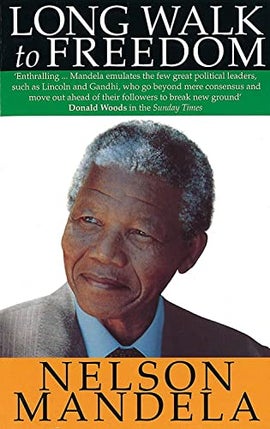
Deemed 'essential reading for anyone who wants to understand history' by former US President, Barack Obama, this is the autobiography of one of the world's greatest moral and political leaders, Nelson Mandela. Imprisoned for more than 25 years, president of the African National Congress and head of South Africa's anti-apartheid movement, the Nobel Peace Prize winner's life was nothing short of extraordinary. Long Walk to Freedom vividly tells this story; one of hardship, resilience and ultimate triumph, written with the clarity and eloquence of a born leader.
The Diary of a Young Girl
By anne frank.
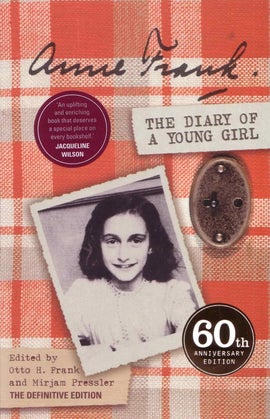
No list of inspiring autobiographies would be complete without Anne Frank's The Diary of a Young Girl . Charting the thirteen-year-old's time hiding in a 'Secret Annex' with her family to escape Gestapo detection, this book (which was discovered after Anne Frank's death), is a must-read, and a testament to the courage shown by the millions persecuted during the Second World War.
The best literary autobiographies
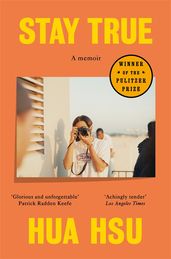
Winner of Pulitzer Prize in Memoir, Stay True is a deeply moving and intimate memoir about growing up and moving through the world in search of meaning and belonging. When Hua Hsu first meets Ken in a Berkeley dorm room, he hates him. A frat boy with terrible taste in music, Ken seems exactly like everyone else. For Hua, Ken represents all that he defines himself in opposition to – the mainstream. The only thing Hua, the son of Taiwanese immigrants, and Ken, whose Japanese American family has been in the US for generations, have in common is that, however they engage with it, American culture doesn’t seem to have a place for either of them.
A Fortunate Woman
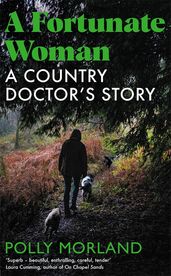
Funny, emotional and imbued with great depth, A Fortunate Woman is an exploration of the life of a country doctor in a remote and wild wooded valley in the Forest of Dean. The story was sparked when writer and documentary maker Polly Morland found a photograph of the valley she lives in tucked inside a tattered copy of John Berger’s A Fortunate Man . Itself an account of the life of a country doctor, the book inspired a woman doctor to follow her vocation in the same remote place. And it is the story of this woman that Polly Morland tells, in this compelling portrait of landscape and community.
Father and Son
By jonathan raban.

On 11 June 2011, three days short of his sixty-ninth birthday, Jonathan Raban suffered a stroke which left him unable to use the right side of his body. Learning to use a wheelchair in a rehab facility outside Seattle and resisting the ministrations of the nurses overseeing his recovery, Raban began to reflect upon the measure of his own life in the face of his own mortality. Together with the chronicle of his recovery is the extraordinary story of his parents’ marriage, the early years of which were conducted by letter while his father fought in the Second World War.
Crying in H Mart
By michelle zauner.
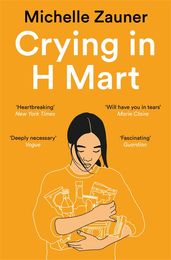
This radiant read by singer, songwriter and guitarist Michelle Zauner delves into the experience of being the only Asian-American child at her school in Eugene, Oregon, combined with family struggles and blissful escapes to her grandmother's tiny Seoul apartment. The family bond is the shared love of Korean food, which helped Michelle reclaim her Asian identity in her twenties. A lively, honest, riveting read.
The Reluctant Carer
By the reluctant carer.
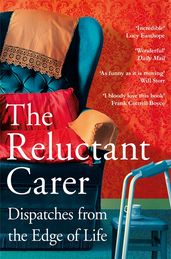
The phone rings. Your elderly father has been taken to hospital, and your even older mother is home with nobody to look after her. What do you do? Drop everything and go and help of course. But it's not that straightforward, and your own life starts to fall apart as quickly as their health. Irresistibly funny, unflinching and deeply moving, this is a love letter to family and friends, to carers and to anyone who has ever packed a small bag intent on staying for just a few days. This is a true story of what it really means to be a carer, and of the ties that bind even tighter when you least expect it.
You may also like
The best non-fiction books of 2024, and all time, the best sports books and autobiographies, must reads: 50 best books of all time.

The New York Times
Books | the 50 best memoirs of the past 50 years, the 50 best memoirs of the past 50 years.
By THE NEW YORK TIMES JUNE 26, 2019
The New York Times’s book critics select the most outstanding memoirs published since 1969.
Click the star icon to create and share your own list of favorites or books to read.
Fierce Attachments
Vivian gornick, farrar, straus & giroux, 1987.
“I remember only the women,” Vivian Gornick writes near the start of her memoir of growing up in the Bronx tenements in the 1940s, surrounded by the blunt, brawling, yearning women of the neighborhood, chief among them her indomitable mother. “I absorbed them as I would chloroform on a cloth laid against my face. It has taken me 30 years to understand how much of them I understood.”
When Gornick’s father died suddenly, she looked in the coffin for so long that she had to be pulled away. That fearlessness suffuses this book; she stares unflinchingly at all that is hidden, difficult, strange, unresolvable in herself and others — at loneliness, sexual malice and the devouring, claustral closeness of mothers and daughters. The book is propelled by Gornick’s attempts to extricate herself from the stifling sorrow of her home — first through sex and marriage, but later, and more reliably, through the life of the mind, the “glamorous company” of ideas. It’s a portrait of the artist as she finds a language — original, allergic to euphemism and therapeutic banalities — worthy of the women that raised her. — Parul Sehgal
I love this book — even during those moments when I want to scream at Gornick, which are the times when she becomes the hypercritical, constantly disappointed woman that her mother, through her words and example, taught the author to be. There’s a clarity to this memoir that’s so brilliant it's unsettling; Gornick finds a measure of freedom in her writing and her feminist activism, but even then, she and her mother can never let each other go. — Jennifer Szalai
Gornick’s language is so fresh and so blunt; it’s a quintessentially American voice, and a beautiful one. The confidence of her tone in “Fierce Attachments” reminds me of the Saul Bellow who wrote, in the opening lines of “The Adventures of Augie March,” “I have taught myself, free-style, and will make the record in my own way.” — Dwight Garner
Buy this book
The Woman Warrior
Maxine hong kingston, alfred a. knopf, 1976.
This book is more than four decades old, but I can’t think of another memoir quite like it that has been published since. True stories, ghost stories, “talk stories” — Maxine Hong Kingston whirs them all together to produce something wild and astonishing that still asserts itself with a ruthless precision.
The American-born daughter of Chinese immigrants, Kingston navigates a bewildering journey between worlds, each one stifling yet perforated by inconsistencies. There’s the Chinese village of Kingston’s ancestors, where girls learn the song of the warrior woman while being told they are destined to become a wife and a slave. There’s the postwar California of her childhood, where she has to unlearn the “strong and bossy” voices of the Chinese women in her family in favor of an “American-feminine” whisper. There’s Mao’s revolution, which is supposed to upend the old feudal system that kept her female ancestors trapped in servitude (if they weren’t victims of infanticides as unwanted baby girls) but also imposes its own deadly cruelty, preventing her parents from returning home.
The narrative undulates, shifting between ghost world, real world and family lore. It can be deadpan and funny, too. The young Kingston resolves to become a lumberjack and a newspaper reporter. Both worthy ambitions, but I’m thankful she wrote this indelible memoir instead. — Jennifer Szalai
Alison Bechdel
Houghton mifflin harcourt, 2006.
Alison Bechdel’s beloved graphic novel is an elaborately layered account of life and artifice, family silence and revelation, springing from her father’s suicide. He was a distant man who devoted himself to the refurbishment of his sprawling Victorian home — and to a hidden erotic life involving young men. The title comes from the abbreviation of the family business — a funeral home — but it also refers to the dual funhouse portrait of father and daughter, of the author’s own queerness.
It’s a sexual and intellectual coming-of-age story that swims along literary lines, honoring the books that nourished Bechdel and her parents and seemed to speak for them: Kate Millet, Proust, Oscar Wilde, theory, poetry and literature. “Fun Home” joins that lineage, an original, mournful, intricate work of art. — Parul Sehgal
The Liars’ Club
Viking, 1995.
This incendiary memoir, about the author’s childhood in the 1960s in a small industrial town in Southeast Texas, was published in 1995 and helped start the modern memoir boom. The book deserves its reputation. You can almost say about Mary Karr’s agile prose what she says about herself at the age of 7: “I was small-boned and skinny, but more than able to make up for that with sheer meanness.”
As a girl, Karr was a serious settler of scores, willing to bite anyone who had wronged her or to climb a tree with a BB gun to take aim at an entire family. Her mother, who “fancied herself a kind of bohemian Scarlett O’Hara,” had a wild streak. She was married seven times, and was subject to psychotic episodes. Her father was an oil refinery worker, a brawling yet taciturn man who came most fully alive when telling tall stories, often in the back room of a bait shop, with a group of men called “The Liars’ Club.”
This is one of the best books ever written about growing up in America. Karr evokes the contours of her preadolescent mind — the fears, fights and petty jealousies — with extraordinary and often comic vividness. This memoir, packed with eccentrics, is beautifully eccentric in its own right. — Dwight Garner
For generations my ancestors had been strapping skillets onto their oxen and walking west. It turned out to be impossible for me to “run away” in the sense other American teenagers did. Any movement at all was taken for progress in my family.
—Mary Karr, “The Liar’s Club”
Christopher Hitchens
Twelve, 2010.
This high-spirited memoir traces the life and times of this inimitable public intellectual, who is much missed, from his childhood in Portsmouth, England, where his father was a navy man, through boarding school, his studies at Oxford and his subsequent career as a writer both in England and the United States.
Christopher Hitchens was a man of the left but unpredictable (and sometimes inscrutable) politically. “Hitch-22” demonstrates how seriously he took the things that really matter: social justice, learning, direct language, the free play of the mind, loyalty and holding public figures to high standards.
This is a vibrant book about friendships, and it will make you want to take your own more seriously. Hitchens recounts moments with friends that include Martin Amis, Salman Rushdie and the poet James Fenton. There is a lot of wit here, and bawdy wordplay, and accounts of long nights spent drinking and smoking. Hitchens decided to become a student of history and politics, he writes, after the Cuban missile crisis. “If politics could force its way into my life in such a vicious and chilling manner, I felt, then I had better find out a bit more about it.” He was a force to contend with from the time he was in short pants. “I was probably insufferable,” he concedes. — Dwight Garner
Read the critics discuss the process of putting together the list.
Men We Reaped
Jesmyn ward, bloomsbury, 2013.
“Men’s bodies litter my family history,” the novelist Jesmyn Ward writes in this torrential, sorrowing tribute to five young black men she knew, including her brother, who died in the span of four years, lost to suicide, drugs or accidents. These men were devoured by her hometown, DeLisle, Miss. — called Wolf Town by its first settlers — “pinioned beneath poverty and history and racism.”
Ward tells their stories with tenderness and reverence; they live again in these pages. Their fates twine with her own — her dislocation and anguish, and later, the complicated story of her own survival, and isolation, as she is recruited to elite all-white schools. She is a writer who has metabolized the Greeks and Faulkner — their themes course through her work — and the stories of the deaths of these men join larger national narratives about rural poverty and racism. But Ward never allows her subjects to become symbolic. This work of great grief and beauty renders them individual and irreplaceable. — Parul Sehgal
Random House, 1995
It’s Vidal, so you know the gossip will be abundant, and top shelf. Scores will be settled (with Anaïs Nin, Charlton Heston, Jacqueline Kennedy Onassis, his mother), conquests enumerated (Jack Kerouac), choice quips dispensed. “At least I have a style,” Truman Capote once sniped at him. “Of course you do,” Vidal responded soothingly. “You stole it from Carson McCullers.”
It was a rangy life — one that took him into the military, politics, Hollywood, Broadway — and he depicts it with the silky urbanity you expect. What comes as a shock is the book’s directness and deep feeling — its innocence.
It’s a love story, at the end of the day. Vidal had a lifelong companion but remained passionately compelled by a beautiful classmate, his first paramour, Jimmie, who died at 19, shot and bayoneted while sleeping in a foxhole on Iwo Jima. He is the phantom that has haunted Vidal’s long, eventful life. “Palimpsest” is a book full of revelations.
“By choice and luck, my life has been spent reading other people’s books and making sentences for my own,” Vidal writes. Our great luck, too. — Parul Sehgal
Giving Up the Ghost
Hilary mantel, a john macrae book/henry holt & company, 2003.
As a poor Catholic girl growing up in the north of England, Hilary Mantel was an exuberant child of improbable ambition, deciding early on that she was destined to become a knight errant and would change into a boy when she turned 4.
Her mesmerizing memoir reads like an attempt to recover the girl she once was, before others began to dictate her story for her. At the age of 7, looking about the garden, she saw an apparition, perhaps the Devil. She thought it was her fault, for allowing her greedy gaze to wander. Her stepfather was bullying, judgmental, condescending; anything Mantel did seemed to anger him. As a young woman, she started to get headaches, vision problems, pains that coursed through her body, bleeding that no longer confined itself to that time of the month. The doctors told her she was insane.
The ghost she is giving up in the title isn’t her life but that of the child she might have had but never will. Years of misdiagnoses culminated in the removal of her reproductive organs, barnacled by scar tissue caused by endometriosis. Her body changed from very thin to very fat. Mantel, perhaps best known for her novels “Wolf Hall” and “Bring Up the Bodies,” writes about all of this with a fine ear and a furious intelligence, as she resurrects phantoms who “shiver between the lines.” — Jennifer Szalai
I used to think that autobiography was a form of weakness, and perhaps I still do. But I also think that, if you’re weak, it’s childish to pretend to be strong.
—Hilary Mantel, “Giving Up the Ghost”
A Childhood
Harry crews, harper & row, 1978.
This taut, powerful and deeply original memoir covers just the first six years of this gifted novelist’s life, but it is a nearly Dickensian anthology of physical and mental intensities.
Harry Crews grew up in southern Georgia, not far from the Okefenokee Swamp. His father, a tenant farmer, died of a heart attack before Crews was 2. His stepfather was a violent drunk. When Crews was 5, he fell into a boiler of water that was being used to scald pigs. His own skin came off, he writes, “like a wet glove.” When he recovered from this long and painful ordeal, he contracted polio so severely that his heels drew back tightly until they touched the backs of his thighs. He was told, incorrectly, that he would never walk again. “The world that circumscribed the people I come from,” he writes, “had so little margin for error, for bad luck, that when something went wrong, it almost always brought something else down with it.”
Crews sought solace in the Sears, Roebuck catalog, the only book in his house besides the Bible. He began his career as a writer by making up stories about the people he saw there. These humans didn’t have scars and blemishes like everyone he knew. “On their faces were looks of happiness, even joy, looks that I never saw much of in the faces of the people around me.” — Dwight Garner
Dreams From My Father
Barack obama, times books/random house, 1995.
Barack Obama’s first book was published a year before he was elected to the Illinois senate and long before his eight years in the White House under the unrelenting gaze of the public eye. “Dreams From My Father” is a moving and frank work of self-excavation — mercifully free of the kind of virtue-signaling and cheerful moralizing that makes so many politicians’ memoirs read like notes to a stump speech.
Obama recounts an upbringing that set him apart, with a tangle of roots that didn’t give him an obvious map to who he was. His father was from Kenya; his mother from Kansas. Obama himself was born in Hawaii, lived in Indonesia for a time, and was largely raised by his mother and maternal grandparents, after his father left for Harvard when Obama was 2.
“I learned to slip back and forth between my black and white worlds,” he writes, “understanding that each possessed its own language and customs and structures of meaning, convinced that with a bit of translation on my part the two worlds would eventually cohere.” To see what held his worlds together was also to learn what kept them apart. This is a book about the uses of disenchantment; the revelations are all the more astonishing for being modest and hard-won. — Jennifer Szalai
Philip Roth
Simon & schuster, 1991.
Philip Roth’s book is a Kaddish to his father, Herman Roth, who developed a benign brain tumor at 86. Surgery was not an option, and Herman became immured in his body, which “had become a terrifying escape-proof enclosure, the holding pen in a slaughterhouse.”
“Patrimony,” which won the National Book Critics Circle Award, is written plainly, without any flourishes — just the unbearable facts of a father’s decline, the body weakening, the vigorous mind dimming. It’s the rough stuff of devotion. Roth adopts care of his increasingly difficult father and witnesses his rapid decline, admonishing himself: “You must not forget anything.”
“He was always teaching me something,” Roth recalls of his father. He never stopped. In this book, Roth offers a moving tribute to the man but also a portrait almost breathtaking in its honesty and lack of sentimentalism, so truthful and exact that it is as much a portrait of living as dying, son as father. “He could be a pitiless realist,” Roth writes of Herman, proudly. “But I wasn’t his offspring for nothing.” — Parul Sehgal
I had seen my father’s brain, and everything and nothing was revealed. A mystery scarcely short of divine, the brain, even in the case of a retired insurance man with an eighth-grade education from Newark’s Thirteenth Avenue School.
—Philip Roth, “Patrimony”
All God’s Dangers: The Life of Nate Shaw
Theodore rosengarten, alfred a. knopf, 1974.
This indelible book, an oral history from an illiterate black Alabama sharecropper, won the National Book Award in 1975, beating a lineup of instant classics that included “The Power Broker,” Robert Caro’s biography of Robert Moses; Bob Woodward and Carl Bernstein’s “All the President’s Men”; Studs Terkel’s “Working”; and Robert M. Pirsig’s “Zen and the Art of Motorcycle Maintenance.” Unlike these other books, “All God’s Dangers” has largely been forgotten. It’s time for that to change.
This book’s author, Theodore Rosengarten, was a Harvard graduate student who went to Alabama in 1968 while researching a defunct labor organization. Someone suggested he speak with Shaw, whose real name was Ned Cobb. What emerged from Cobb’s mouth was dense and tangled social history, a narrative that essentially takes us from slavery to Selma from the point of view of an unprosperous but eloquent and unbroken black man.
Reading it, you will learn more about wheat, guano, farm implements, bugs, cattle killing and mule handling than you would think possible. This is also a dense catalog of the ways that whites tricked and mistreated blacks in the first half of the 20th century. “Years ago I heard that Abraham Lincoln freed the colored people,” Cobb says, “but it didn’t amount to a hill of beans.” About his white neighbors, he declares, “Any way they could deprive a Negro was a celebration to ’em.” This book is not always easy reading, but it is the real deal, an essential American document. — Dwight Garner
Lives Other Than My Own
Emmanuel carrère. translated from the french by linda coverdale., metropolitan books/henry holt & company, 2011.
You begin this memoir thinking it will be about one thing, and it turns into something else altogether — a book at once more ordinary and more extraordinary than any first impressions might allow.
Emmanuel Carrère starts with the 2004 tsunami in Sri Lanka — he was there, vacationing with his girlfriend. But that’s just the first 50 pages. Then he turns to the story of his girlfriend’s sister, a small-town judge who’s dying of cancer, and her friendship with another judge, who also has cancer. Carrère’s girlfriend chides him for thinking that such unpromising material offers him some sort of golden storytelling opportunity: “They don’t even sleep together — and at the end, she dies,” she says to him. “Have I got that straight? That’s your story?”
She does have it straight, but there’s so much more to it. Carrère weaves in his own experiences, coming up against his own limitations, his own prejudices, his own understanding of what defines a meaningful life. His sentences are clean, never showy; he writes about himself through others in a way that feels both necessarily generous and candidly — which is to say appropriately — narcissistic.
Whenever I try to describe this memoir — and I do that often, since it’s a book I don’t just recommend but implore people to read — I feel like I’m trying to parse a magic trick. — Jennifer Szalai
A Tale of Love and Darkness
Amos oz. translated from the hebrew by nicholas de lange., harcourt, 2004.
This memoir was born from a long silence, written 50 years after Amos Oz’s mother killed herself with sleeping pills, when he was 12, three months before his bar mitzvah. The resulting book is both brutal and generous, filled with meandering reflections on a life’s journey in politics and literature.
The only child of European Jews who settled in the Promised Land, Oz grew up alongside the new state of Israel, initially enamored of a fierce nationalism before becoming furiously (and in one memorable scene, rather hilariously) disillusioned. As a lonely boy, Oz felt unseen by his awkward father and confounded by his brilliant and deeply unhappy mother. She taught him that people were a constant source of betrayal and disappointment. Books, though, would never let him down. Hearing about what happened to those Jews who stayed in Europe, the young Oz wanted to become a book, because no matter how many books were destroyed there was a decent chance that one copy could survive.
Oz says he essentially killed his father by moving to a kibbutz at 15 and changing his name. But his father lives on in this memoir, along with Oz’s mother — not just in his recollections of her, but in the very existence of this book. She was the one who captivated him with stories that “amazed you, sent shivers up your spine, then disappeared back into the darkness before you had time to see what was in front of your eyes.” — Jennifer Szalai
This Boy’s Life
Tobias wolff, the atlantic monthly press, 1989.
“Our car boiled over again just after my mother and I crossed the Continental Divide.” So begins Tobias Wolff’s powerful and impeccably written memoir of his childhood in the 1950s, a classic of the genre that has lost none of its power.
Divorced mother and son had hit the road together, fleeing a bad man, trying to change their luck and maybe get rich as uranium prospectors. The author’s wealthy and estranged father was absent. Soon his mother linked up with a man named Dwight (never trust a man named Dwight) who beat young Wolff, stole his paper route money and forced him to shuck horse chestnuts after school for hours, until his hands were “crazed with cuts and scratches” from their sharply spined husks. Wolff became wild in high school, a delinquent and a petty thief, before escaping to a prep school in Pennsylvania. His prose lights up the experience of growing up in America during this era. He describes going to confession and trying to articulate an individual sin this way: “It was like fishing a swamp, where you feel the tug of something that at first seems promising and then resistant and finally hopeless as you realize that you’ve snagged the bottom, that you have the whole planet on the other end of your line.” — Dwight Garner
A Life’s Work
Rachel cusk, picador, 2002.
Rachel Cusk writes about new motherhood with an honesty and clarity that makes this memoir feel almost illicit. Sleepless nights, yes; colic, yes; but also a raw, frantic love for her firstborn daughter that she depicts and dissects with both rigor and amazement.
As many readers as there are who love “A Life’s Work” as much as I do, I know others who have been put off by its steely register, finding it too denuded, shorn of warmth and giddiness — those very things that help make motherhood such an enormous experience, and not just a grueling one. But whenever I read Cusk’s book, I am irrevocably pulled along in its thrall, constantly startled by her observations — milk running “in untasted rivulets” down her baby’s “affronted cheek”; pregnancy literature that “bristles with threats and the promise of reprisal” — and her willingness to see her experience cold.
Or, at least, to try to, because what becomes clear is that it’s impossible for Cusk to hold on to her old self. The childless writer who could compartmentalize with ease and take boundaries for granted has to learn an entirely new way of being. Embedded in Cusk’s chiseled sentences are her attempts to engage with a roiling vulnerability. None of the chipper, treacly stuff here; motherhood deserves more respect than that. — Jennifer Szalai
J.M. Coetzee
Viking, 1997.
The Nobel Prize-winning J.M. Coetzee is one of those novelists who rarely give interviews, and when he does, he’s like the Robert Mueller of the literary world — reticent, discreet and quietly insistent that his books should speak for themselves.
Coetzee, in other words, is taciturn in the extreme. Yet he has also written three revealing volumes about his life — “Boyhood,” “Youth” and “Summertime.” The first, “Boyhood,” is most explicitly and conventionally a memoir, covering his years growing up in a provincial village outside of Cape Town. The child of Afrikaner parents who had pretensions to English gentility, he was buttoned-up and sensitive, desperate to fit into the “normal” world around him but also confounded and repulsed by it. He noticed how his indolent relatives clung to their privileged position in South Africa’s brutal racial hierarchy through cruelty and a raw assertion of power. Out in the world, he lived in constant fear of violence and humiliation; at home he was cosseted by his mother and presided like a king.
The memoir is told in the third-person present tense, which lends it a peculiar immediacy. Coetzee is free to observe the boy he once was without the interpretive intrusions that come with age; he can remain true to what he felt then, rather than what he knows now. His recollections are stark and painfully intimate: “He feels like a crab pulled out of its shell, pink and wounded and obscene.” — Jennifer Szalai
Harcourt Brace Jovanovich, 1974
“The book is already a period piece,” the legendary travel writer Jan Morris opens her memoir. “It was written in the 1970s, and is decidedly of the 1970s.” It might be of its time but it is also ardent, musical, poetic and full of warm humor — a chronicle of ecstasies. Best remembered as one of the first accounts of gender transition, “Conundrum” is a study of home in all its forms — of finding home in one’s body, of Morris’s native Wales, of all the cities she possesses by dint of loving them so fiercely.
We are carried from her childhood, in the lap of a family militantly opposed to conformity, to her long career as a reporter in England and Egypt. She went everywhere, met everyone: Che Guevara (“sharp as a cat in Cuba”), Guy Burgess (“swollen with drink and self-reproach in Moscow”). It’s an enviably full life, with a long marriage, four children and Morris’s determinedly sunny disposition and ability to regard every second of her life, however difficult — especially if difficult — as a species of grand adventure.
She chafes at the notion of “identity” (“a trendy word I have long distrusted, masking as it often does befuddled ideas and lazy thinking”). It is thrilling to watch her arrive at an understanding of a sense of self and language that is her own, bespoke. “To me gender is not physical at all, but is altogether insubstantial,” she writes. “It was a melody that I heard within myself.” — Parul Sehgal
I did not query my condition, or seek reasons for it. I knew very well that it was an irrational conviction — I was in no way psychotic, and perhaps not much more neurotic than most of us; but there it was, I knew it to be true, and if it was impossible then the definition of possibility was inadequate.
—Jan Morris, “Conundrum”
Sonali Deraniyagala
Alfred a. knopf, 2013.
Sonali Deraniyagala was searching the internet for ways to kill herself when one click led to another and she was staring at a news article featuring pictures of her two young sons. The boys had died not long before — victims of the 2004 tsunami in Sri Lanka, which also killed Deraniyagala’s husband and her parents. She herself survived by clinging to a branch.
“Wave” is a meticulous account of derangement — of being so undone by grief that life becomes not just impossible but terrifying. She recalls stabbing herself with a butter knife. She couldn’t look at a flower or a blade of grass without feeling a sickening sense of panic. Reading this book is like staring into the abyss, only instead of staring back it might just swallow you whole.
This, believe it or not, is why you should read it — for Deraniyagala’s unflinching account of the horror that took away her family, and for her willingness to lay bare how it made her not only more vulnerable but also, at times, more cruel. Her return to life was gradual, tentative and difficult; she learned the only way out of her unbearable anguish was to remember what had happened and to keep it close. — Jennifer Szalai
Always Unreliable: Unreliable Memoirs, Falling Towards England and May Week Was in June
Clive james, picador, 2004.
The Australian-born critic, poet, memoirist, novelist, travel writer and translator Clive James isn’t as well known in America as he is in England, where he’s lived most of his adult life. Over there, cabdrivers know who James is: the ebullient man who hosted many comic and erudite television programs over the years. We have no one quite like him over here: Think Johnny Carson combined with Edmund Wilson.
James is the author of five memoirs, to which many readers have a cultlike devotion. The first three — “Unreliable Memoirs,” “Falling Towards England” and “May Week Was in June” — have been collected into one volume, “Always Unreliable,” and they are especially incisive and comic. In a preface to the first book, James dealt a truth few memoirists will admit: “Most first novels are disguised autobiographies. This autobiography is a disguised novel.” He’s an admitted exaggerator, but nonetheless he’s led a big life.
He was born in 1939 and grew up with an absent father, a Japanese prisoner of war. Released, his father died in a plane crash on his way home when James was 5. The author fully relives his adolescent agonies (“you can die of envy for cratered faces weeping with yellow pus”) and his rowdy troublemaking years. Later volumes take him to London and then to Cambridge University, where he edits Granta, the literary magazine, dabbles in theater (“It was my first, cruel exposure to the awkward fact that the arts attract the insane”) and gets married. He is never less than good company. — Dwight Garner
Travels With Lizbeth
Lars eighner, st. martin’s press, 1993.
Lars Eighner’s memoir contains the finest first-person writing we have about the experience of being homeless in America. Yet it’s not a dirge or a Bukowski-like scratching of the groin but an offbeat and plaintive hymn to life. It’s the sort of book that releases the emergency brake on your soul. Eighner spent three years on the streets (mostly in Austin, Tex.) and on the road in the late 1980s and early 1990s, after suffering from migraines and losing a series of jobs. The book he wrote is a literate and exceedingly humane document.
On the streets, he clung to a kind of dignity. He refused to beg or steal. He didn’t care for drugs; he barely drank. “Being suddenly intoxicated in a public place in the early afternoon,” he writes, “is not my idea of a good time.” He foraged for books and magazines as much as food, but an especially fine portion of this book is his writing about dumpster-diving. There’s the jarring impression that every grain of rice is a maggot. About botulism, he writes: “Often the first symptom is death.” There is something strangely Emersonian, capable and self-reliant, in his scavenging. “I live from the refuse of others,” he declares. “I think it a sound and honorable niche.” — Dwight Garner
Day after day I could aspire, within reason, to nothing more than survival. Although the planets wandered among the stars and the moon waxed and waned, the identical naked barrenness of existence was exposed to me, day in and day out.
—Lars Eighner, “Travels With Lizbeth”
Little, Brown & Company, 2015
The photographer Sally Mann’s memoir is weird, intense and uncommonly beautiful. She has real literary gifts, and she’s led a big Southern-bohemian life, rich with incident. Or maybe it only seems rich with incident because of an old maxim that still holds: Stories happen only to people who can tell them.
Like Mary Karr, Mann as a child was a scrappy, troublemaking tomboy, one who grew into a scrappy, troublemaking, impossible-to-ignore young woman and artist. She was raised in Virginia by sophisticated, lettered parents. When she grew too wild, they sent her away to a prep school in Vermont where, she writes, “I smoked, I drank, I skipped classes, I snuck out, I took drugs, I stole quarts of ice cream for my dorm by breaking into the kitchen storerooms, I made out with my boyfriends in the library basement, I hitchhiked into town and down I-91, and when caught, I weaseled out of all of it.”
This memoir recounts some of the Southern gothic elements of her parents’ lives. This book is heavily illustrated, and traces her growth as an artist. It recounts friendships with Southern artists and writers such as Cy Twombly and Reynolds Price. Her anecdotes have snap. About his advanced old age, in a line that is hard to forget, Twombly tells the author that he is “closing down the bodega for real.” But this story is entirely her own. — Dwight Garner
Country Girl
Edna o’brien, little, brown and company, 2013.
The enormously gifted Irish writer Edna O’Brien was near the red-hot center of the Swinging ’60s in London. She dropped acid with her psychiatrist, R.D. Laing. Among those who came to her parties were Marianne Faithfull, Sean Connery, Princess Margaret and Jane Fonda. Richard Burton and Marlon Brando tried to get her into bed. Robert Mitchum succeeded after wooing her with this pickup line: “I bet you wish I was Robert Taylor, and I bet you never tasted white peaches.”
O’Brien was born in a village in County Clare, in the west of Ireland, in 1930. This earthy and evocative book also traces her youth and her development as a writer. Her small family was religious. Her father was a farmer who drank and gambled; her mother was a former maid. She has described her village, Tuamgraney, as “enclosed, fervid and bigoted.” O’Brien didn’t attend college. She moved to Dublin, where she worked in a drugstore while studying at the Pharmaceutical College at night. She began to read literature, and she wondered: “Why could life not be lived at that same pitch? Why was it only in books that I could find the utter outlet for my emotions?” This memoir has perfect pitch. — Dwight Garner
Marjane Satrapi. Translated from the French by Mattias Ripa and Blake Ferris.
Pantheon, 2003.
At the age of 6, Marjane Satrapi privately declared herself the last prophet of Islam. At 14, she left Iran for a boarding school in Austria, sent away by parents terrified of their outspoken daughter’s penchant for challenging her teachers (and hypocrisy wherever she sniffed it out). At 31, she published “Persepolis,” in French (it was later translated into English by Mattias Ripa and Blake Ferris), a stunning graphic memoir hailed as a wholly original achievement in the form.
There’s still a startling freshness to the book. It won’t age. In inky shadows and simple, expressive lines — reminiscent of Ludwig Bemelmans’s “Madeline” — Satrapi evokes herself and her schoolmates coming of age in a world of protests and disappearances (and scoring punk rock cassettes on the black market).
The revolution, the rise of fundamentalism, a brutal family history of torture, imprisonment and exile are conveyed from a child’s perspective and achieve a stark, shocking impact. — Parul Sehgal
Margo Jefferson
Pantheon, 2015.
The motto was simple in Margo Jefferson’s childhood home: “Achievement. Invulnerability. Comportment.” Her family was part of Chicago’s black elite. Her father was the head pediatrician at Provident, America’s oldest black hospital; her mother was a socialite. They saw themselves as a “Third Race, poised between the masses of Negroes and all classes of Caucasians.” Life was navigated according to strict standards of behavior and femininity. Jefferson writes of the punishing psychic burden of growing up feeling that she was a representative for her race and, later, of nagging, terrifying suicidal impulses.
Jefferson won a Pulitzer Prize in 1995 for her book reviews in The New York Times. “Negroland” is an extended form of criticism that dances between a history of social class to a close reading of her mother’s expressions; the information calibrated in a brow arched “three to four millimeters.”
The prose is blunt and evasive, sensuous and ascetic, doubting and resolute — and above all beautifully skeptical of the genre, of the memoir’s conventions, clichés and limits. “How do you adapt your singular, willful self to so much history and myth? So much glory, banality, honor and betrayal?” she asks. This shape-shifting, form-shattering book carves one path forward. — Parul Sehgal
25 More Great Memoirs
Presented in Alphabetical Order by Author
Clothes, Clothes, Clothes. Music, Music, Music. Boys, Boys, Boys.
Viv albertine, thomas dunne books/st. martin’s press, 2014.
Viv Albertine participated in the birth of punk in the mid-1970s. She was in a band with Sid Vicious before he joined the Sex Pistols. She dated Mick Jones while he was putting together his new band, the Clash. She could barely play guitar, yet she became the lead guitarist for the Slits. Her memoir is wiry and fearless. It contains story after story about men who told her she couldn’t do things that she did anyway. Her life up to the breakup of the Slits occupies only half of the book. There’s a lot of pain in the second section: loneliness, doubt, a bad marriage, cancer, depression. Throughout, this account has an honest, lo-fi grace.
Martin Amis
Talk miramax books/hyperion, 2000.
In this memoir, the acclaimed author of “London Fields,” “Money” and other novels decided, he writes, “to speak, for once, without artifice.” The entertaining, loosely structured result is movingly earnest and wickedly funny. It includes a portrait, both cleareyed and affectionate, of the author’s father, the comic novelist and poet Kingsley Amis. In addition, “Experience” offers more vivid and harrowing writing about dental problems than you might have thought one person capable of producing.
Slow Days, Fast Company
Alfred a. knopf, 1977.
The Los Angeles-born glamour girl, bohemian, artist, muse, sensualist, wit and pioneering foodie Eve Babitz writes prose that reads like Nora Ephron by way of Joan Didion, albeit with more lust and drugs and tequila. “Slow Days, Fast Company” and “Eve’s Hollywood,” the book that preceded it, are officially billed as fiction, but they are mostly undisguised dispatches from her own experiences in 1970s California. Reading her is like being out on the warm open road at sundown, with what she called “4/60 air-conditioning” — that is, going 60 miles per hour with all four windows down. You can feel the wind in your hair.
Russell Baker
Congdon & weed, 1982.
Russell Baker’s warm and disarmingly funny account of his life growing up in Depression-era America has garnered comparisons to the work of Mark Twain. The book quickly became a beloved best seller when it was published, and went on to win the Pulitzer Prize for biography. Baker was born into poverty in Virginia in 1925. He was 5 years old when his father, then 33, fell into a diabetic coma and died. The author’s strong, affectionate mother is a major presence in the book. Baker, a longtime humorist and columnist for The New York Times, died in January at 93.
Kafka Was the Rage
Anatole broyard, carol southern books/crown publishers, 1993.
Anatole Broyard, a longtime book critic and essayist for The New York Times, died in 1990 of prostate cancer. What he had finished of this memoir before his death mostly concerned his time living in the West Village after World War II. “A war is like an illness,” he writes, “and when it’s over you think you’ve never felt so well.” He writes about the vogue for psychoanalysis, his experience opening a used-book store and, primarily, his formative relationship with the artist Sheri Martinelli (her pseudonym in the book is Sheri Donatti). The book was truncated, but the writing in it is brilliant and often epigrammatic: “I just want love to live up to its publicity.”
Between the World and Me
Ta-nehisi coates, spiegel & grau, 2015.
Ta-Nehisi Coates’s book, in the form of a letter to his son, is a scalding examination of his own experience as a black man in America, and of how much of American history has been systemically built on exploiting and committing violence against black bodies. Inspired by a section of James Baldwin’s “The Fire Next Time” that was addressed to the author’s nephew, Coates’s book is a powerful testimony that will continue to have a profound impact on discussions about race in America.
The Year of Magical Thinking
Joan didion, alfred a. knopf, 2005.
Joan Didion, so long an exemplar of cool, of brilliant aloofness, showed us her unraveling in this memoir about the sudden death of her husband of 40 years, the writer John Gregory Dunne, and the frightening illness of her daughter, Quintana. It’s a troubled, meditative book, in which Didion writes of what it feels like to have “cut loose any fixed idea I had ever had about death, about illness, about probability and luck, about good fortune and bad.”
Barbarian Days
William finnegan, penguin press, 2015.
This account of a lifelong surfing obsession won the Pulitzer Prize in biography. William Finnegan, a longtime staff writer for The New Yorker, recalls his childhood in California and Hawaii, his many surfing buddies through the years and his taste for a kind of danger that approaches the sublime. In his 20s, he traveled through Asia and Africa and the South Pacific in search of waves, living in tents and cars and cheap apartments. One takes away from “Barbarian Days” a sense of a big, wind-chapped, well-lived life.
Personal History
Katharine graham, alfred a. knopf, 1997.
Katharine Graham’s brilliant but remote father, Eugene Meyer, capped his successful career as a financier and public servant by buying the struggling Washington Post in 1933 and nursing it to health. Graham took command of the paper in 1963, and steered it through the Watergate scandal and the end of Richard Nixon’s presidency, among other dramas. Her autobiography covers her life from childhood to her command of a towering journalistic institution in a deeply male-dominated industry. Her tone throughout is frank, self-critical, modest and justifiably proud.
Thinking in Pictures
Temple grandin, doubleday, 1995.
Memoirs are valued, in part, for their ability to open windows onto experiences other than our own, and few do that as dramatically as Temple Grandin’s “Thinking in Pictures.” Grandin, a professor of animal science who is autistic, describes the “library” of visual images in her memory, which she is constantly updating. (“It’s like getting a new version of software for the computer.”) As Oliver Sacks wrote in an introduction to the book, “Grandin’s voice came from a place which had never had a voice, never been granted real existence, before.”
Autobiography of a Face
Lucy grealy, houghton mifflin, 1994.
When she was 9 years old, Lucy Grealy was stricken with a rare, virulent form of bone cancer called Ewing’s sarcoma. She had radical surgery to remove half of her jaw, and years of radiation and chemotherapy, and recovered. She then endured a sense of disfigurement and isolation from other children. She became an accomplished poet and essayist before dying at 39 in 2002. Although entitled to self-pity, Grealy was not given to it. This memoir is a moving meditation on ugliness and beauty. Grealy’s life is the subject of another powerful memoir, Ann Patchett’s “Truth & Beauty,” which recounts the friendship between the two writers.
Dancing With Cuba
Alma guillermoprieto. translated from the spanish by esther allen., pantheon, 2004.
Alma Guillermoprieto was a 20-year-old dance student in 1969, when Merce Cunningham offered to recommend her for a teaching job at the National Schools of the Arts in Havana. This memoir is her account of the six months she spent there, a frustrating and fascinating time that opened her eyes to the world beyond dance. Eventually, political turmoil, piled on top of loneliness, youthful angst and assorted romantic troubles, led the author to the edge of a nervous breakdown. This remembrance is a pleasure to read, full of humanity, sly humor, curiosity and knowledge.
Minor Characters
Joyce johnson, houghton mifflin, 1983.
Joyce Johnson was 21 and not long out of Barnard College when, in the winter of 1957, Allen Ginsberg set her up on a blind date with Jack Kerouac, who was 34 and still largely unknown. Thus began an off-and-on relationship that lasted nearly two years, during which time “On the Road” was published, leading to life-altering fame — not only for Kerouac but many of his closest friends. Johnson’s book about this time is a riveting portrait of an era, and a glowing introduction to the Beats. It’s a book about a so-called minor character who, in the process of writing her life, became a major one.
The Memory Chalet
Penguin press, 2010.
The historian Tony Judt, who was known for his incisive analysis of current events and his synthesizing of European history in books like “Postwar,” wrote this book of autobiographical fragments after he was stricken with amyotrophic lateral sclerosis and had become “effectively quadriplegic.” He would think back over his life in the middle of the night, shape those memories into stories and dictate them to an assistant the next day. “The Memory Chalet,” the resulting unlikely artifact, ranges over Judt’s boyhood in England; the lives of his lower-middle-class Jewish parents; life as a student and fellow at King’s College, Cambridge, in the 1960s and early ’70s; and his life in New York City, where he eventually settled and taught.
Kiese Laymon
Scribner, 2018.
The most recently published entry on this list of 50 books, Kiese Laymon’s “Heavy” details the author’s childhood in Mississippi in the 1980s and his relationship with his alternately loving and abusive mother, who raised him on her own. It’s full of sharp, heart-rending thoughts about growing up black in the United States, and his fraught relationship with his body — Laymon’s weight has severely fluctuated over the years, a subject he plumbs with great sensitivity. This is a gorgeous, gutting book that’s fueled by candor yet freighted with ambivalence. It’s full of devotion and betrayal, euphoria and anguish.
Priestdaddy
Patricia lockwood, riverhead books, 2017.
Patricia Lockwood, an acclaimed poet, weaves in this memoir the story of her family — including her Roman Catholic priest father, who received a special dispensation from the Vatican — with the crisis that led her and her husband to live temporarily under her parents’ rectory roof. The book, consistently alive with feeling, is written with elastic style. And in Lockwood’s father, Greg, it has one of the great characters in nonfiction: He listens to Rush Limbaugh while watching Bill O’Reilly, consumes Arby’s Beef ’n Cheddar sandwiches the way other humans consume cashews and strides around in his underwear. Hilarious descriptions — of, to take one example, Greg’s guitar playing — alternate with profound examinations of family, art and faith.
H Is for Hawk
Helen macdonald, grove press, 2015.
When we meet Helen Macdonald in this beautiful and nearly feral book, she’s in her 30s, with “no partner, no children, no home.” When her father dies suddenly on a London street, it steals the floor from beneath her. Obsessed with birds of prey since she was a girl, Macdonald was already an experienced falconer. In her grief, seeking escape into something, she began to train one of nature’s most vicious predators, a goshawk. She unplugged her telephone. She told her friends to leave her alone. Nearly every paragraph she writes about the experience is strange in the best way, and injected with unexpected meaning.
The Color of Water
James mcbride, riverhead books, 1996.
This complex and moving story, which enjoyed a long run on best-seller lists, is about James McBride’s relationship with his mother, Ruth, the daughter of a failed itinerant Orthodox Jewish rabbi. She fervently adopted Christianity and founded a black Baptist church in the Red Hook section of Brooklyn with McBride’s father. The book is suffused with issues of race, religion and identity, and simultaneously transcends those issues to be a story of family love and the sheer force of a mother’s will.
Angela’s Ashes
Frank mccourt, scribner, 1996.
“When I look back on my childhood I wonder how I survived at all,” Frank McCourt writes near the beginning of his Pulitzer Prize-winning memoir. His parents had immigrated to New York, where McCourt was born, but soon moved back to Ireland, where they hoped relatives could help them with their four children. Having returned, they experienced crushing poverty. The book did perhaps more than any other to cement the 1990s boom in memoir writing — and reading. It features a Dickensian gallery of schoolmasters, shopkeepers and priests, in addition to McCourt’s unforgettable family.
Cockroaches
Scholastique mukasonga. translated from the french by jordan stump., archipelago books, 2016.
Thirty-seven of Scholastique Mukasonga’s family members were massacred in the Rwandan genocide in the spring of 1994, when the Hutu majority turned on their Tutsi neighbors, killing more than 800,000 people in 100 days. “Cockroaches” is Mukasonga’s devastating account of her childhood and what she was able to learn about the slaughter of her family. (“Cockroach” was the Hutu epithet of choice for the Tutsis.) It is a compendium of unspeakable crimes and horrifically inventive sadism, delivered in an even, unwavering tone.
Keith Richards
Little, brown & company, 2010.
In “Life,” the Rolling Stones guitarist writes with uncommon candor and immediacy — with the help of the veteran journalist James Fox — about drugs and his run-ins with the police; about the difficulties of getting and staying clean; and about the era when rock ’n’ roll came of age. He spares none of his thoughts, good and bad, about Mick Jagger. He also describes the spongelike love of music that he inherited from his grandfather, and his own sense of musical history — his reverence for the blues and R&B masters he has studied his entire life.
A Life in the Twentieth Century
Arthur schlesinger jr., houghton mifflin company, 2000.
Arthur Schlesinger Jr., a prizewinning historian who served in John F. Kennedy’s White House, here writes about the first 33 years of his life, from his birth in 1917 — the year the United States entered World War I — to 1950 and the beginnings of the Cold War. The son of an acclaimed historian, Schlesinger was born into great privilege. He went on a yearlong trip around the world between graduating from prep school and attending Harvard. This book has incisive things to say about the large themes of world history, including isolationism and interventionism, and about many other subjects besides, including the films of the 1930s.
Edmund White
Ecco/harpercollins publishers, 2006.
“My Lives” is broken into chapters whose headings follow a clever formula: “My Shrinks,” “My Mother,” “My Father,” “My Hustlers” ... But these seemingly narrow-focus, time-hopping slices add up to a robust autobiography. Edmund White’s portraits of his parents and their lives before him are novelistic; his writing about his own sexual experiences is exceedingly candid. Reviewing the book for The Guardian, the novelist Alan Hollinghurst said that “no other writer of White’s eminence has described his sexual life with such purposeful clarity.”
Why Be Happy When You Could Be Normal?
Jeanette winterson, grove press, 2012.
This memoir’s title is the question Jeanette Winterson’s adoptive mother asked after discovering her daughter was a lesbian. Winterson’s mother loomed over her life, as she looms over this book. In a quiet way she is one of the great horror mothers of English-language literature. When she was angry with her daughter, she would say, “The Devil led us to the wrong crib.” This memoir’s narrative includes Winterson’s search for her birth mother and the author’s self-invention, her intellectual development. The device of the trapped young person saved by books is a hoary one, but Winterson makes it seem new, and sulfurous.
Close to the Knives
David wojnarowicz, vintage, 1991.
David Wojnarowicz, who died at 37 in 1992, was a vital part of the East Village art scene of the 1980s that also produced Keith Haring, Jenny Holzer, Jean-Michel Basquiat and others. He was a painter, photographer, performance artist, AIDS activist and more — including writer. This work of hard-living autobiography is written in a flood of run-on sentences, and in a tone of almost hallucinatory incandescence. A typical sentence begins: “I remember when I was 8 years old I would crawl out the window of my apartment seven stories above the ground and hold on to the ledge with 10 scrawny fingers and lower myself out above the sea of cars burning up Eighth Avenue ...”
Share your picks on social media or email them to yourself as a reading list.
Designed and produced by Kevin Zweerink, Erica Ackerberg, and John Williams
More on NYTimes.com
Advertisement

IMAGES
VIDEO
COMMENTS
To help you find the best autobiographies, we’ve put together a wide-ranging list that also includes some of the best books of all time.
In this article, we’ll explore ten such inspirational biographies that promise to captivate your imagination, stir your emotions, and inspire you in ways you’d never thought possible. So, without further ado, let’s dive into the fascinating world of others.
Equal parts enlightening and inspiring; these are the best autobiographies, biographies and memoirs of 2023, and all time. Discover your next read.
The New York Times’s book critics select the most outstanding memoirs published since 1969. Click the star icon to create and share your own list of favorites or books to read.
26 July 2023 by Reyan Mishra. In this article, we present a curated list of the 10 best autobiographies that offer an insightful and engaging reading experience. Here are autobiographies that provide a captivating glimpse into the lives of extraordinary individuals who have made significant contributions to society, overcome hardships, and ...
146 books based on 43 votes: Angela’s Ashes by Frank McCourt, The Diary of a Young Girl by Anne Frank, Love Life by Rob Lowe, Open by Andre Agassi, Born ...